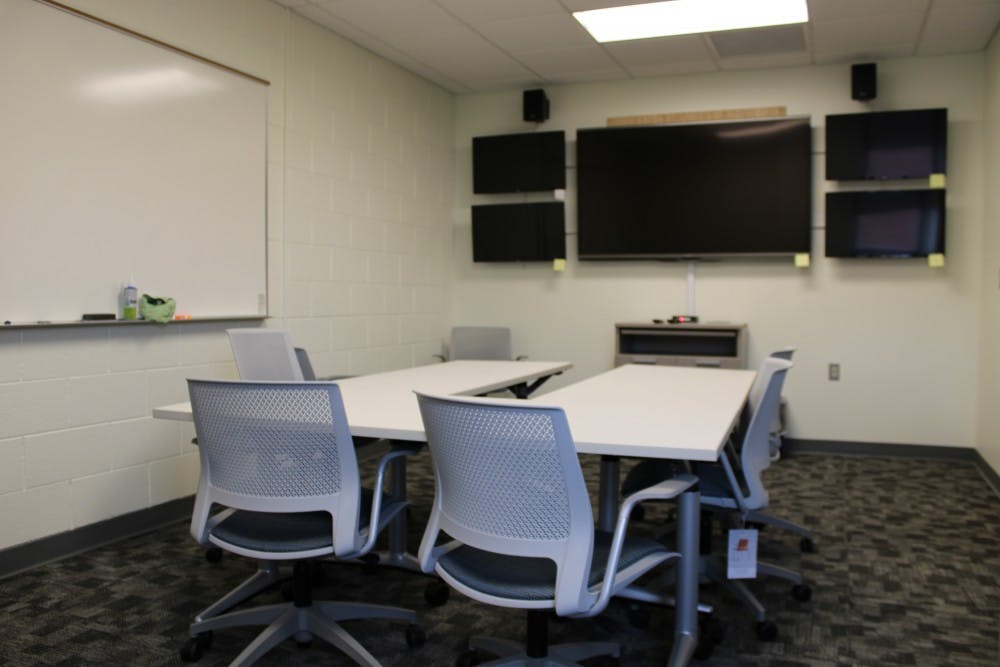Social media lab provides space for interdisciplinary research

The Social Media Research and Analytics lab will open on Oct. 23-24 in Moore 430 to provide a space for interdisciplinary collaborative research.
After a year in the making, Central Michigan University's College of the Arts and Media is unveiling the new Social Media Research and Analytics Lab on Oct. 23-24 in Moore Hall 430. The lab will provide a collaborative research space where faculty members and students can study emerging social media trends and gauge public opinion.
The lab offers users access to Crimson Hexagon, a software that collects data from social media sites such as Twitter, Facebook, Reddit, Tumblr and blogs. The data covers demographics, engagement, volume, top responses and conversations, among other information.
“The ultimate goal is to provide a collaborative space for researchers across the university interested in studying new media and current events to find both the tools to answer their research questions and connect with other scholars who are studying similar things,” said communication faculty member Tisha Dejmanee.
The project was spearheaded by Dejmanee, Broadcast and Cinematic Arts faculty member Trevor Diehl, Journalism faculty member Zulfia Zaher, Communication Chairperson Michael Papa and Research Assistant Pravallika Paidi.
Although Crimson Hexagon is a tool for analyzing social media, the team – combining their various communication, software development and social media skills – emphasizes the interdisciplinary uses of the lab.
“Social media is growing, so it’s a big research area for a lot of faculty and students,” Zaher said. “This software will help them at the very least collect data if they’re not interested in the visualization aspect of the software.”
Dejmanee described how an environmental researcher could possibly use the space as an example of the software's interdisciplinary potential.
“Social listening is the broader concept (behind the lab), so (a researcher) might want to know what people are saying about the climate strike,” she said. “Online you will find a lot of polarized opinions, so maybe you’ll want to look at who’s responding to the climate strike, what their interests are, their demographic profile, what they're saying about it and go more in-depth about why they support or (don’t support) the strike.”
The establishment of the lab comes to CMU in the face of a changing social landscape, and the team hopes the lab will spark integrative collaboration and contend with emerging technologies.
“As the media technologies are evolving, they’re touching every aspect of our lives and they've become so pervasive and powerful that you almost don’t recognize it, especially for younger folks who grew up with these technologies,” Diehl said. “For those who haven’t always been around it, we’ve seen these things transform society in a dynamic way. In a university setting, it takes much longer to reform curriculum than to invent a new technology that changes things. Our role here is to help research and teach in this area that’s so radically different than it was just a few years ago.”






